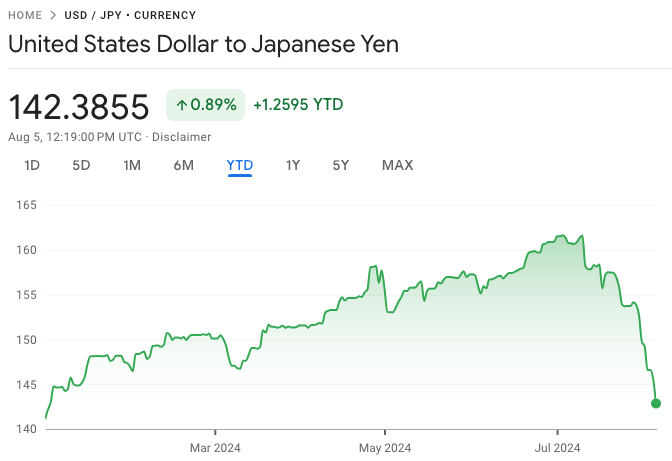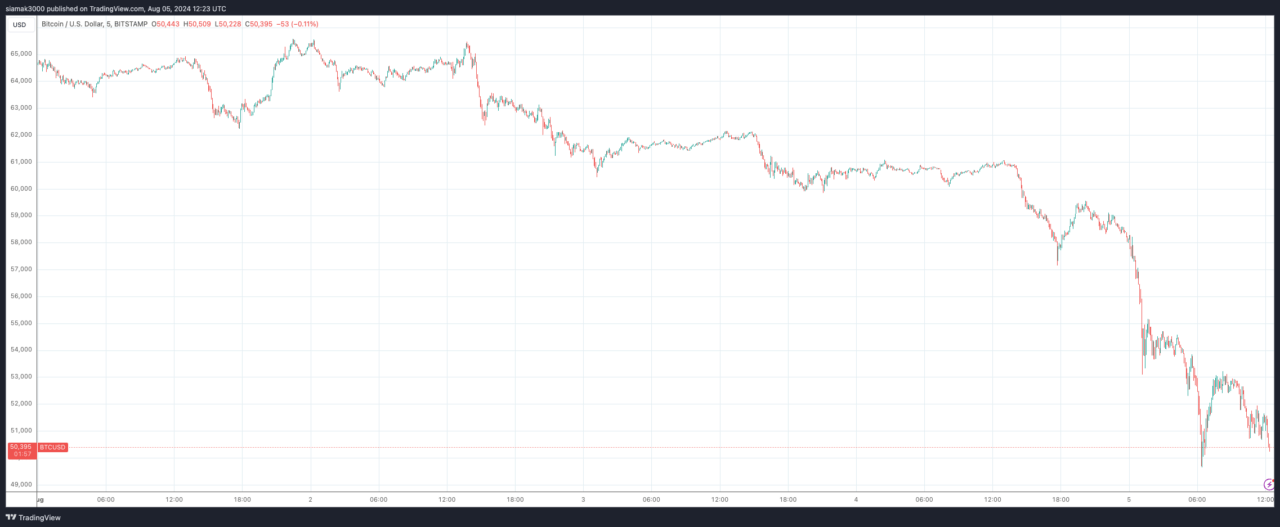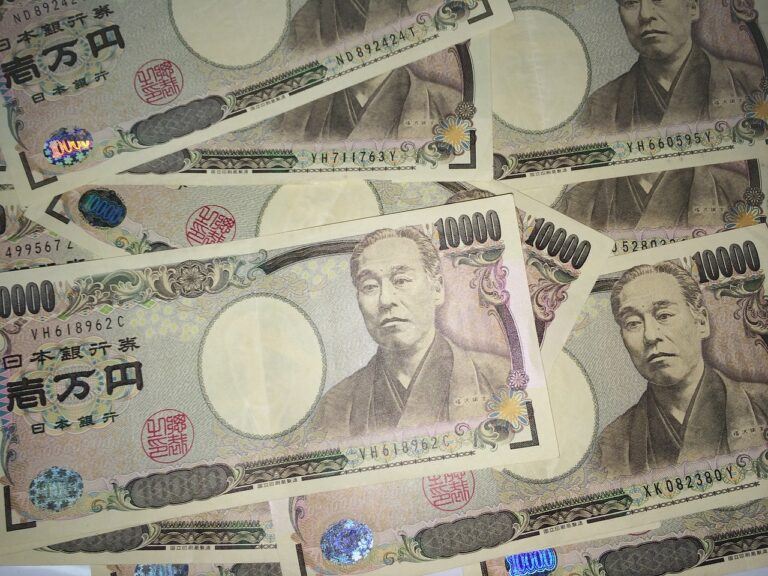Earlier today, Jonathan Wu, an investor at Asylum Ventures, a $55 million early-stage venture fund based in Brooklyn, New York, posted on the social media platform a thread on the cryptocurrency market’s ongoing crash.
Wu began his explanation by addressing the fundamentals of carry trading, a strategy where investors borrow money at low-interest rates in one currency to invest in higher-yielding assets in another.
Carry trade is a financial strategy in which investors borrow money at low interest rates in one currency and use it to invest in higher-yielding assets in another currency. The primary goal is to capitalize on the differential between the low borrowing costs and the higher returns on the investments. Typically, investors target currencies from countries with lower interest rates for borrowing, such as the Japanese Yen or Swiss Franc, and convert these into currencies from countries with higher interest rates, like the US Dollar or Australian Dollar, to invest in assets that offer better returns, such as bonds, stocks, or even higher interest rate deposits.
This strategy can be highly profitable when exchange rates and interest rate differentials remain stable or move in favorable directions. However, it also carries significant risks. If the currency borrowed strengthens against the currency in which the investments are made, the cost of repaying the loan increases, potentially wiping out the profits from the investments or even leading to losses. Additionally, changes in interest rates or economic conditions can cause sudden and large shifts in exchange rates, which can lead to rapid unwinding of carry trades and result in significant market volatility.
According to Wu, three critical conditions are essential for this strategy to be successful: low borrowing rates, valuable collateral, and profitable investments. However, Wu noted that all these conditions are currently deteriorating for carry traders, setting the stage for significant market disruptions.
A significant part of Wu’s analysis focuses on the Bank of Japan (BOJ) and its recent monetary policy adjustments. Wu explained that the BOJ has been compelled to tighten its monetary policy to shield Japanese citizens from the impacts of inflation, drawing parallels to the Federal Reserve’s historic rate hikes between 2022 and 2023. Wu noted that an already weakened Yen exacerbated the situation, making it challenging for Japan, a resource-poor nation reliant on imports, to manage its foreign trade effectively.
Wu says that in response to inflationary pressures, the BOJ raised interest rates. Wu clarified that increasing interest rates, which are essentially the cost of borrowing money, reduces the money supply by making loans more expensive. This move aimed to curb inflation but had far-reaching consequences for carry traders.
Wu elaborated on the plight of carry traders who had borrowed in Yen to purchase foreign assets. The rise in interest rates increased the Yen’s value, posing a severe challenge for these traders. Wu explained that higher interest rates elevate the demand for Yen due to better yields, thereby strengthening the currency. Consequently, the cost of borrowing in Yen also surged, leading to a reduction in the money supply and further driving up the Yen’s value.
Wu pointed out that the Yen’s value spiked significantly, with the USD/JPY exchange rate dropping from a high of 162 to 145 (at the time of writing, the rate is 142.38).

This dramatic appreciation meant that anyone with Yen-denominated loans now faced a higher debt burden in USD terms. Wu highlighted that the increased debt load and higher interest rates forced some traders to sell their assets to repay their loans, which added further upward pressure on the Yen, creating a vicious cycle of forced liquidations and currency appreciation.
Drawing parallels to the crypto market, Wu described how reflexive dynamics—where market movements amplify themselves—play a crucial role. Wu likened the current scenario to the unwinding of Terra, emphasizing that while things may go smoothly when conditions are favorable (i.e., a cheaper Yen), they can become disastrous when the situation reverses. Wu suggested that many traders underestimated the possibility of interest rates rising from zero, leading to overly optimistic bets on the continued devaluation of the Yen and the BOJ’s willingness to endure domestic economic pain.
Wu concluded that the hidden leverage in the financial system, facilitated by Japan’s monetary policy, had been a significant driver of risk asset valuations. With the BOJ tightening its policy, Wu noted that this leverage is being unwound, causing a ripple effect across various markets, including cryptocurrencies. Wu emphasized that the closure of what he termed as the “infinite money glitch” of Japan’s monetary policy has led to a broad sell-off, impacting those with poor risk management first and potentially leading to a more extensive liquidation cascade.
At the time of writing, Bitcoin is trading at around $50,453, down 17.7% in the past 24-hour period.

Featured Image via Pixabay









